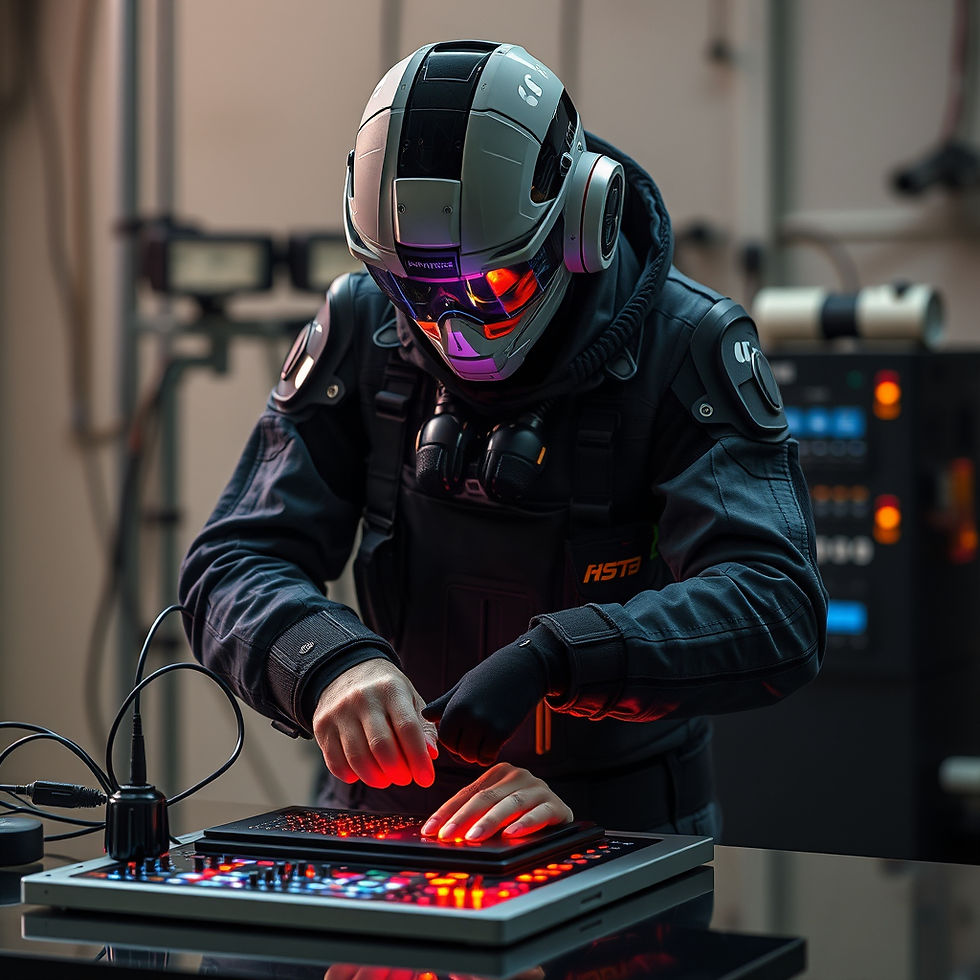Biometric Feedback in Gaming: When Games Respond to You
- Geniuscrate

- Sep 2, 2025
- 2 min read

Gaming has always been about immersion, but what if your game could literally feel what you feel? With biometric feedback, this future is becoming reality. Instead of games responding only to button presses or mouse clicks, they can now adapt to your heartbeat, stress levels, eye movements, and even brain activity.
In this blog, we’ll explore how biometric feedback is revolutionizing gaming, making experiences more personal, adaptive, and immersive than ever before. At GeniusCrate, we believe in harnessing the power of emerging technologies like biometrics to create hyper-realistic game assets that respond dynamically to players, shaping the future of interactive entertainment.
What Is Biometric Feedback in Gaming?
Biometric feedback refers to the use of physiological signals from the body, like heart rate, skin temperature, breathing patterns, or pupil dilation, to influence gameplay. This goes beyond traditional controllers. With wearable sensors, VR headsets, or even built-in cameras, games can read your body’s signals in real time and adjust accordingly.
How It Changes the Game
Adaptive Difficulty: Horror games that detect your heart racing and turn up the intensity, or ease off when you’re overwhelmed.
Deeper Immersion: Characters might react to your stress, calming you down or provoking you further.
Personalized Training: Fitness games that monitor oxygen intake and adjust workouts for maximum efficiency.
Accessibility: Players with limited mobility could use biometrics as an alternative control system.
Benefits and Challenges
Benefits:
Creates personalized gameplay experiences.
Bridges gaming with health and wellness applications.
Expands interactivity beyond traditional inputs.
Challenges:
Data privacy concerns around collecting sensitive biometrics.
Requires specialized sensors and hardware.
Can be overwhelming if not carefully balanced in design.
The Future of Biometric Gaming
As biometric sensors become smaller, cheaper, and more accurate, the possibilities expand. Imagine competitive games where your mental calm under pressure determines success, or narrative-driven games that rewrite their storylines based on your emotional state. The future of gaming won’t just be about what you play; it will be about how your body and mind interact with the virtual world.
GeniusCrate’s Perspective
At GeniusCrate, we’re inspired by how biometric feedback transforms immersion. By creating cutting-edge game assets that adapt to live inputs, we design experiences that don’t just look realistic, but they also respond to the player’s very pulse.



Comments